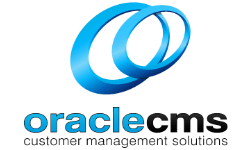- This event has passed. Click here to search for upcoming events >
Real-Time WFM for Contact Centre Analysts (December 2023)
December 5, 2023 @ 9:00 am - 5:00 pm AEDT

WFM Real-Time Analyst for Contact Centres training course
Workforce management is one of the most critical functions in a contact centre, so it is important to ensure everyone on the WFM team has the skills and knowledge they need to be successful.
The December 2023 Real-Time WFM for Contact Centre Analysts training course is specifically designed for Real-Time Analysts (RTAs) in a Contact Centre to ensure they have the tools they need to make better decisions, encourage more efficient planning, and improve your customers’ experience.
It covers everything from workforce planning fundamentals to tracking and analysis as well as what needs to be considered when things don’t go to plan such as adjusting rosters, break times, queue allocations and so on.
In larger contact centres, the Real-Time Analyst is typically a dedicated role (or roles). If you are in a smaller centre where you have to wear multiple hats, we recommended the Workforce Management for Practitioners training course that covers all you need to know about WFM.
Finally, the principles and techniques taught in this course are vendor agnostic and are not dependent on the type/brand of WFM software you are using.
This course includes four core modules:
1. Introduction to Workforce Management
With over 70% of contact centre operating costs being related to personnel, it is critical to ensure the right number of staff are in place to optimise the customer experience.
You will gain an understanding of what workforce management is; why it is so important and the challenges that organisations face when trying to optimise the customer experience.
2. Workforce Planning Fundamentals
As a Real-Time Analyst, it is important to understand the basics of workforce management.
In this module, we provide insight into the importance of workforce planning. This includes an overview of forecasting and scheduling as well as why multi-skilling is important.
3. Tracking and Analysis
Once the plan has been created, it’s important to track what is happening and analyse the results. As an RTA, this is one of the primary tasks.
Real-Time Analysts will learn what they need to be looking at and how to spot any variances from what was planned.
4. Intervention and Recommendations
Even with the best planning, things change. Events happen that can increase or decrease customer demand, schedules change and RTA’s need to take actions to try to ensure the best and most consistent service outcome.
The final module covers why intervention is often required; how to manage exceptions; when to re-forecast and how best to provide recommendations to the business.
Tags: Workforce Management training






